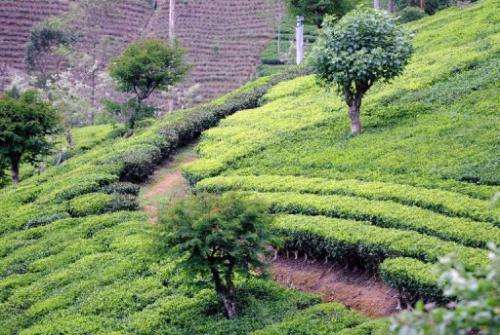Consumption threat to vulnerable species: study

The developed world's insatiable appetite for products like coffee and timber is threatening the survival of one in three vulnerable animal species in poor countries, according to an Australian study.
Academics at the University of Sydney spent five years tracking the world economy, evaluating over five billion supply chains connecting consumers to over 15,000 commodities produced in 187 countries.
They particularly focused on the global trade of goods implicated in biodiversity loss such as coffee, cocoa, and lumber, with the data cross-referenced with a global register of 25,000 vulnerable species.
The study, which was published in the scientific journal Nature, concluded that international trade chains can accelerate degradation in locations far removed from where the product is bought.
"Until now these relationships have only been poorly understood," said lead author Manfred Lenzen, from the university's Integrated Sustainability Analysis group.
"Our extraordinary number crunching, which took years of data collection and thousands of hours on a supercomputer to process, lets us see these global supply chains in amazing detail for the first time."

The study showed that in countries like Madagascar, Papua New Guinea, Sri Lanka and Honduras, 50 to 60 percent of biodiversity loss was linked to exports, mostly to meet demand from richer countries.
It cited the example of spider monkeys threatened by habitat loss because of strong demand for coffee and an increase in cocoa plantations in Mexico and Central America.
In Papua New Guinea, it said 171 species, including the black-spotted cuscus and eastern long-beaked echidna, were threatened by export industries including mining and timber to a few large trading partners, including Australia.
Sixty of these species alone in PNG were under threat from logging to satisfy Japanese residential construction, the authors said, adding that agricultural exports from Indonesia affected 294 species, including tigers.
"There is increasing awareness that developed countries' consumption of imported products can cause a biodiversity footprint that is larger abroad than at home," the study said.
"The study shows how this is the case for many countries, including the US, Japan, and numerous European states."
Co-author Barney Foran said he hoped the findings would help make labelling of products on supermarket shelves with sustainability ratings the norm, rather than the exception.
"We shouldn't let retailers make sustainability labels a premium product," he said.
"We should ask that they always stock products that are made responsibly, from the bottom shelf to the top shelf."
On the production side, the study recommends companies be required to make foreign suppliers accountable to the same production standards they hold at home.
Journal information: Nature
(c) 2012 AFP














